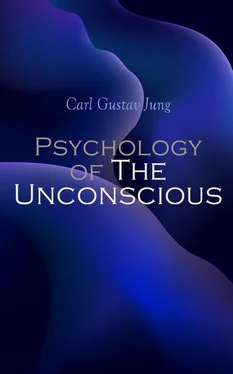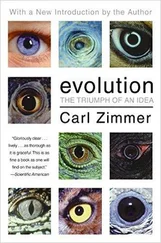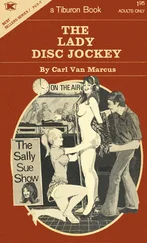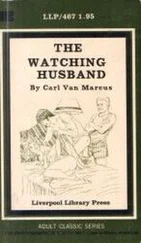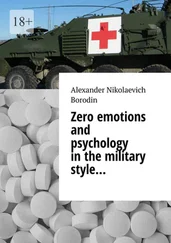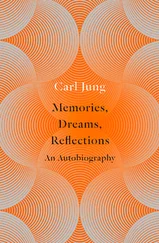Job suffered doubly, on one side through the loss of his fortune, on the other through the lack of understanding in his friends; the latter can be seen throughout the book. The suffering of the misunderstood recalls the figure of Cyrano de Bergerac—he too suffered doubly, on one side through hopeless love, on the other side through misunderstanding. He falls, as we have seen, in the last hopeless battle against “Le Mensonge, les Compromis, les Préjugés, les Lâchetés et la Sottise.—Oui, Vous m’arrachez tout le laurier et la rose!”
Job laments
“God delivereth me to the ungodly,
And casteth me into the hands of the wicked,
I was at ease, and he brake me asunder;
Yea, he hath taken me by the neck, and dashed me to pieces:
“ He hath also set me up for his mark.
His archers compass me round about ;
He cleaveth my reins asunder, and doth not spare;
He poureth out my gall upon the ground.
He breaketh me with breach upon breach;
He runneth upon me like a giant.”— Job xvi: 11–15.
The analogy of feeling lies in the suffering of the hopeless struggle against the more powerful. It is as if this conflict were accompanied from afar by the sounds of “creation,” which brings up a beautiful and mysterious image belonging to the unconscious, and which has not yet forced its way up to the light of the upper world. We surmise, rather than know, that this battle has really something to do with creation, with the struggles between negations and affirmations. The references to Rostand’s “Cyrano” through the identification with Christian, to Milton’s “Paradise Lost,” to the sorrows of Job, misunderstood by his friends, betray plainly that in the soul of the poet something was identified with these ideas. She also has suffered like Cyrano and Job, has lost paradise, and dreams of “creation,”—creation by means of thought—fruition through the whirlwind of Anaxagoras. [71]
We once more submit ourselves to Miss Miller’s guidance:
“I remember that when fifteen years old, I was once very much stirred up over an article, read aloud to me by my mother, concerning the idea which spontaneously produced its object. I was so excited that I could not sleep all night because of thinking over and over again what that could mean.
“From the age of nine to sixteen, I went every Sunday to a Presbyterian Church, in charge of which, at that time, was a very cultured minister. In one of the earliest memories which I have retained of him, I see myself as a very small girl sitting in a very large pew, continually endeavoring to keep myself awake and pay attention, without in the least being able to understand what he meant when he spoke to us of Chaos, Cosmos and the Gift of Love (don d’amour).”
There are also rather early memories of the awakening of puberty (nine to sixteen) which have connected the idea of the cosmos springing from chaos with the “don d’amour.” The medium in which these associations occur is the memory of a certain very much honored ecclesiastic who spoke those dark words. From the same period of time comes the remembrance of that excitement about the idea of the “creative thought” which from itself “produced its object.” Here are two ways of creation intimated: the creative thought, and the mysterious reference to the “don d’amour.”
At the time when I had not yet understood the nature of psychoanalysis, I had a fortunate opportunity of winning through continual observation a deep insight into the soul of a fifteen-year-old girl. Then I discovered, with astonishment, what the contents of the unconscious phantasies are, and how far removed they are from those which a girl of that age shows outwardly. There are wide-reaching phantasies of truly mythical fruitfulness. The girl was, in the split-off phantasy, the race-mother of uncounted peoples. [72]If we deduct the poetically spoken phantasy of the girl, elements are left which at that age are common to all girls, for the unconscious content is to an infinitely greater degree common to all mankind than the content of the individual consciousness. For it is the condensation of that which is historically the average and ordinary.
Miss Miller’s problem at this age was the common human problem: “How am I to be creative?” Nature knows but one answer to that: “Through the child (don d’amour!).” “But how is the child attained?” Here the terrifying problem emerges, which, as our analytic experience shows, is connected with the father, [73]where it cannot be solved; because the original sin of incest weighs heavily for all time upon the human race. The strong and natural love which binds the child to the father, turns away in those years during which the humanity of the father would be all too plainly recognized, to the higher forms of the father, to the “Fathers” of the church, and to the Father God, [74]visibly represented by them, and in that there lies still less possibility of solving the problem. However, mythology is not lacking in consolations. Has not the logos become flesh too? Has not the divine pneuma , even the logos , entered the Virgin’s womb and lived among us as the son of man? That whirlwind of Anaxagoras was precisely the divine νοῦς which from out of itself has become the world. Why do we cherish the image of the Virgin Mother even to this day? Because it is always comforting and says without speech or noisy sermon to the one seeking comfort, “I too have become a mother,”—through the “idea which spontaneously produces its object.”
I believe that there is foundation enough at hand for a sleepless night, if those phantasies peculiar to the age of puberty were to become possessed of this idea—the results would be immeasurable! All that is psychologic has an under and an over meaning, as is expressed in the profound remark of the old mystic: οὐρανὸς ἄνο, οὐρανὸς κάτο, αἰθέρα ἄνο, αἰθέρα κάτο, πᾶν τοῦτο ἄνο, πᾶν τοῦτο κάτο, τοῦτο λαβὲ καὶ εὐτυχει [75]—
We would show but slight justice, however, to the intellectual originality of our author, if we were satisfied to trace back the commotion of that sleepless night absolutely and entirely to the sexual problem in a narrow sense. That would be but one-half, and truly, to make use of the mystic’s expression, only the under half. The other half is the intellectual sublimation, which strives to make true in its own way the ambiguous expression of “the idea which produces its object spontaneously,”— ideal creation in place of the real .
In such an intellectual accomplishment of an evidently very capable personality, the prospect of a spiritual fruitfulness is something which is worthy of the highest aspiration, since for many it will become a necessity of life. Also this side of the phantasy explains, to a great extent, the excitement, for it is a thought with a presentiment of the future; one of those thoughts which arise, to use one of Maeterlinck’s expressions, [76]from the “inconscient supérieur,” that “prospective potency” of subliminal combinations. [77]
I have had the opportunity of observing certain cases of neuroses of years’ duration, in which, at the time of the beginning of the illness or shortly before, a dream occurred, often of visionary clarity. This impressed itself inextinguishably upon the memory, and in analysis revealed a hidden meaning to the patient which anticipated the subsequent events of life; that is to say, their psychologic meaning. [78]I am inclined to grant this meaning to the commotion of that restless night, because the resulting events of life, in so far as Miss Miller consciously and unconsciously unveils them to us, are entirely of a nature to confirm the supposition that that moment is to be considered as the inception and presentiment of a sublimated aim in life.
Читать дальше
